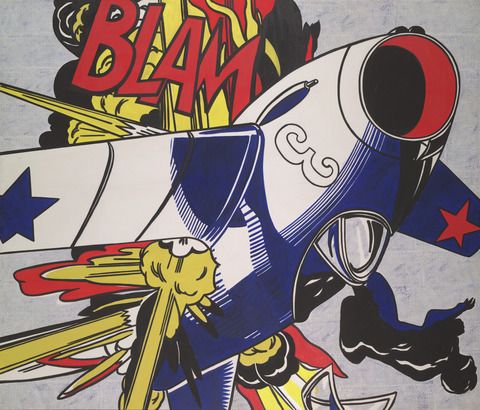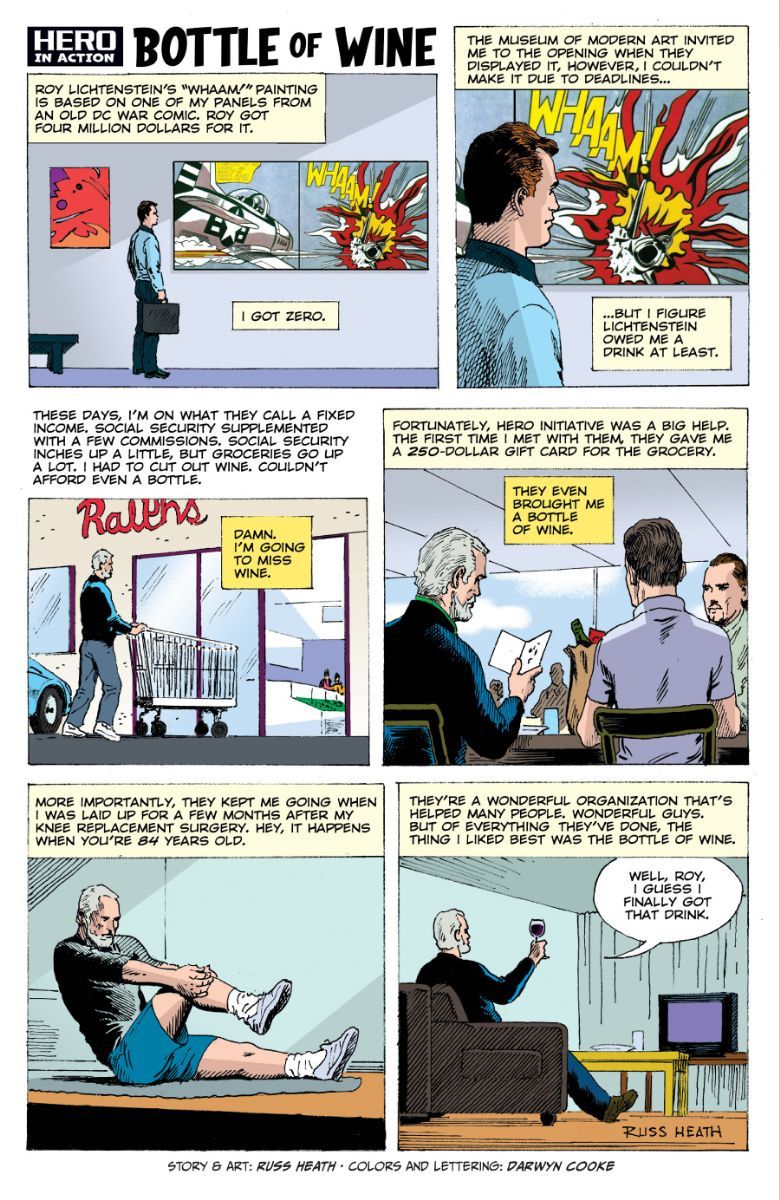In the past couple of weeks, "Bottle of Wine," a one-page comic by Russ Heath rightfully captivated the imagination of many industry observers, where the legendary artist addresses the appropriation of his work by pop artist Roy Lichtenstein. Lichtenstein got rich and famous, the strip relates, and Heath received no monetary compensation. A silver lining, Heath describes, is that the work of The Hero Initiative -- a nonprofit focused on aiding comics creators in need -- has provided him with financial support decades later, including assistance after a knee-replacement surgery.
A tweet on Nov. 1 from cartoonist Dylan Horrocks helped bring widespread attention to the comic -- 1,325 retweets and 1,000 favorites as of Wednesday afternoon -- and renewed critiques of Lichtenstein's body of work, frequently derivative of existing comic book art with no credit to the original illustrator. Outlets from Boing Boing to ComicsAlliance all picked up on Heath's strip, bringing greater awareness to both the Hero Initiative's work and Lichtenstein's problematic oeuvre.
Hero Initiative President Jim McLauchlin reached ROBOT 6 to clear the air on a couple of elements of the "Bottle of Wine" coverage. First, the comic strip (colored and lettered by Darwyn Cooke) was initially published in May 2012, in IDW's Hero Comics 2012. (In fact, ROBOT 6 ran the comic that month.) Also, the Lichtenstein work cited in the comic, 1963's "Whaam!," was actually based on a panel by Irv Novick in 1962's All-American Men of War #89, published by DC Comics -- Lichtenstein lifted from Heath in 1962's "Blam," with a panel also from All-American Men of War #89. Same issue, different artists.
Not only was Heath denied credit and payment in 1962 -- although he did say he was invited to the opening at the Museum of Modern Art -- recognition for his role in the painting continues to evade him more than 50 years later. His name doesn't appear in the painting's Wikipedia entry, nor on the "Blam" page on Yale University Art Gallery's site, where the work currently resides. All evidence that no matter the year, Heath's work remains relevant -- and a reminder of the type of impact The Hero Initiative can have on a creator's life.


